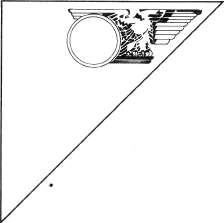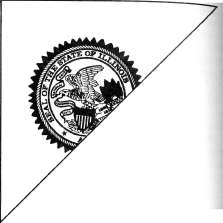 |
Home | Search | Browse | About IPO | Staff | Links |
 |
Home | Search | Browse | About IPO | Staff | Links |
 Letters
Letters
More on hazardous waste EDITOR: Theresa Walker's article "Hazardous waste: What's in a definition?" in the December 1983 issue was generally accurate and unbiased. However, there are several important problems with Illinois' hazardous waste/solid waste management program which the article slighted or ignored, including the following: • The universe of waste regulated from cradle to grave is much more extensive in Illinois. Companies which generate non-hazardous "special waste" must initiate a manifest, use a licensed "special waste" hauler, and be assured that the ultimate disposal site has a supplemental permit to dispose of the particular waste, before transporting such non-hazardous but "special" waste offsite. In Illinois, from 1,500 to 2,000 wastes are characterized as "special" by the Illinois Environmental Protection Agency, versus only 500 or so which are federally classified as hazardous. Illinois industrial firms fill out hundreds of thousands of forms each year to comply with the state's dual program — a costly paperwork burden not required by federal law. • Illinois has maintained outdated "solid waste management" rules which overlap and conflict with federal RCRA (Resource Conservation and Recovery Act) rules. Thus, the Illinois Environmental Protection Agency contends that a company treating, storing or disposing of hazardous waste on-site must not only comply with the hazardous waste management program under federal law (as incorporated in the Illinois Pollution Control Board's rules), but also must comply with the solid waste management program, even though industrial companies were never intended to be subject to these rules (which were adopted years ago for landfills). Companies are being required to obtain state solid waste management permits for treatment and storage facilities for which the companies have federal RCRA permits or interim status. This is costly, wasteful and unnecessary. • Additionally, what materials are "waste" is unclear. Many by-products of manufacturing processes are sold as raw materials or are reused at the site where they are generated. These use, reuse, recycling and reclamation activities should not be regulated as waste management activities. Rather, until discarded, the materials should not be considered to be "waste." Unfortunately, state agencies sometimes attempt to regulate these materials as if they were discarded hazardous or "special" wastes. Thomas L. Reid 36/February 1984/Illinois Issues  Selected State Reports
Selected State Reports
State Documents • Publications of the Illinois Natural History Survey, 1876-1983, Department of Energy and Natural Resources, Natural History Survey Division (August 1983), 45 pp. Scientists at the Natural History Survey study the animal and plant life of the state to determine the most effective means of protecting and intelligently using these resources for the maximum economic, educational and recreational benefits of all Illinois citizens. Reports based on this work are listed in the survey of publications under five categories: aquatic biology, botany and plant pathology, economic entomology, faunistic surveys and insect identification, and wildlife research. There is also an author index. • Outdoor Recreation in Illinois: The 1983 Policy Plan, Department of Conservation (November 1983), 102 pp. In addition to describing the state's extensive resources as well as its outdoor recreational needs, this plan provides a discussion of 11 issues confronting Illinois in 1980s; there are also four views of how to use the Land and Water Conservation Fund. Despite the department's ambitious sounding goals, the concluding statement warns: "In contrast to previous . . . plans, this plan has been less expansive in its view of future outdoor recreation provision, due primarily to the current and projected future state economy and the anticipated continued uncertainty of federal assistance." • Starting and Operating an Illinois Business, Department of Commerce and Community Affairs (n.d.), 22 pp. This booklet is divided into two sections. The first, on how to start a business, gives information on the legal organization of a business, franchise disclosure, acquisitions, licenses and permits and where to go for start-up assistance. The second part concerns the operation of a business and covers seven further topics: the Uniform Commercial Code, labor, training, utilities, transportation, taxes and operating assistance. Other Reports • Identifying the Causes of Failure; A Selected Survey of Science Advisory Mechanisms, by John W. Ahlen, Institute of Government and Public Affairs at the University of Illinois and the Illinois Legislative Council (file 9-362); (August 1983), 63 pp.; available free of charge from IGPA, 1201 W. Nevada, Urbana 61801. While the federal executive branch recognized the need for scientific and technical information as earlty as the beginning of World War II, state level interest did not develop until the fifties. The varied experiences of three states — New York, California and Illinois — with legislative science advisory mechanisms may be instructive for those wishing to establish similar agencies. Items listed by Under State Documents have been received by the Documents Unit, Illinois State Library, Springfield, and are usually available from public libraries in the state through inter-library loan. —Anna J. Merritt February 1984/Illinois Issues/37
|